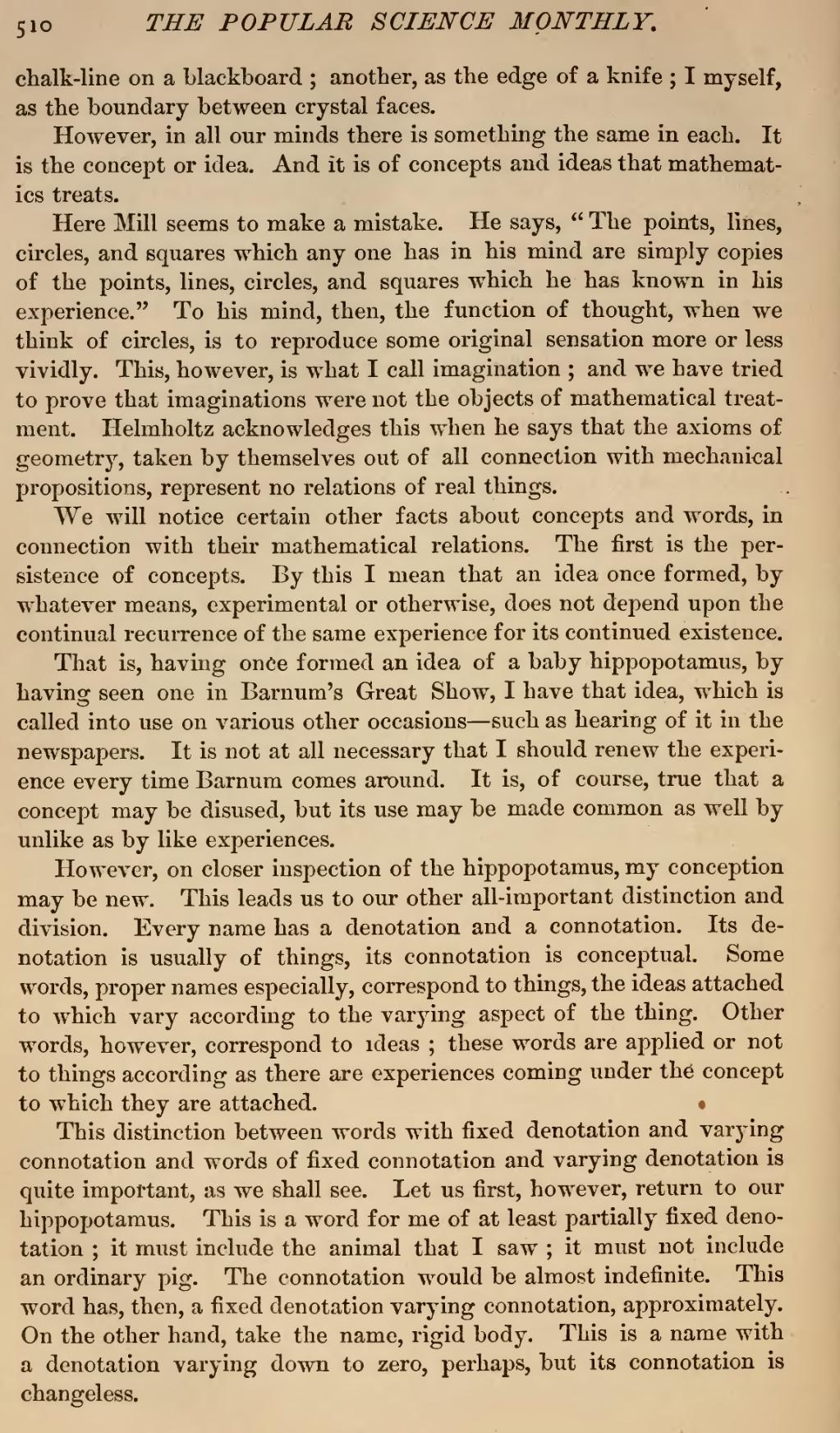chalk-line on a blackboard; another, as the edge of a knife; I myself, as the boundary between crystal faces.
However, in all our minds there is something the same in each. It is the concept or idea. And it is of concepts and ideas that mathematics treats.
Here Mill seems to make a mistake. He says, "The points, lines, circles, and squares which any one has in his mind are simply copies of the points, lines, circles, and squares which he has known in his experience." To his mind, then, the function of thought, when we think of circles, is to reproduce some original sensation more or less vividly. This, however, is what I call imagination; and we have tried to prove that imaginations were not the objects of mathematical treatment. Helmholtz acknowledges this when he says that the axioms of geometry, taken by themselves out of all connection with mechanical propositions, represent no relations of real things.
We will notice certain other facts about concepts and words, in connection with their mathematical relations. The first is the persistence of concepts. By this I mean that an idea once formed, by whatever means, experimental or otherwise, does not depend upon the continual recurrence of the same experience for its continued existence.
That is, having once formed an idea of a baby hippopotamus, by having seen one in Barnum's Great Show, I have that idea, which is called into use on various other occasions—such as hearing of it in the newspapers. It is not at all necessary that I should renew the experience every time Barnum comes around. It is, of course, true that a concept may be disused, but its use may be made common as well by unlike as by like experiences.
However, on closer inspection of the hippopotamus, my conception may be new. This leads us to our other all-important distinction and division. Every name has a denotation and a connotation. Its denotation is usually of things, its connotation is conceptual. Some words, proper names especially, correspond to things, the ideas attached to which vary according to the varying aspect of the thing. Other words, however, correspond to ideas; these words are applied or not to things according as there are experiences coming under the concept to which they are attached.
This distinction between words with fixed denotation and varying connotation and words of fixed connotation and varying denotation is quite important, as we shall see. Let us first, however, return to our hippopotamus. This is a word for me of at least partially fixed denotation; it must include the animal that I saw; it must not include an ordinary pig. The connotation would be almost indefinite. This word has, then, a fixed denotation varying connotation, approximately. On the other hand, take the name, rigid body. This is a name with a denotation varying down to zero, perhaps, but its connotation is changeless.

